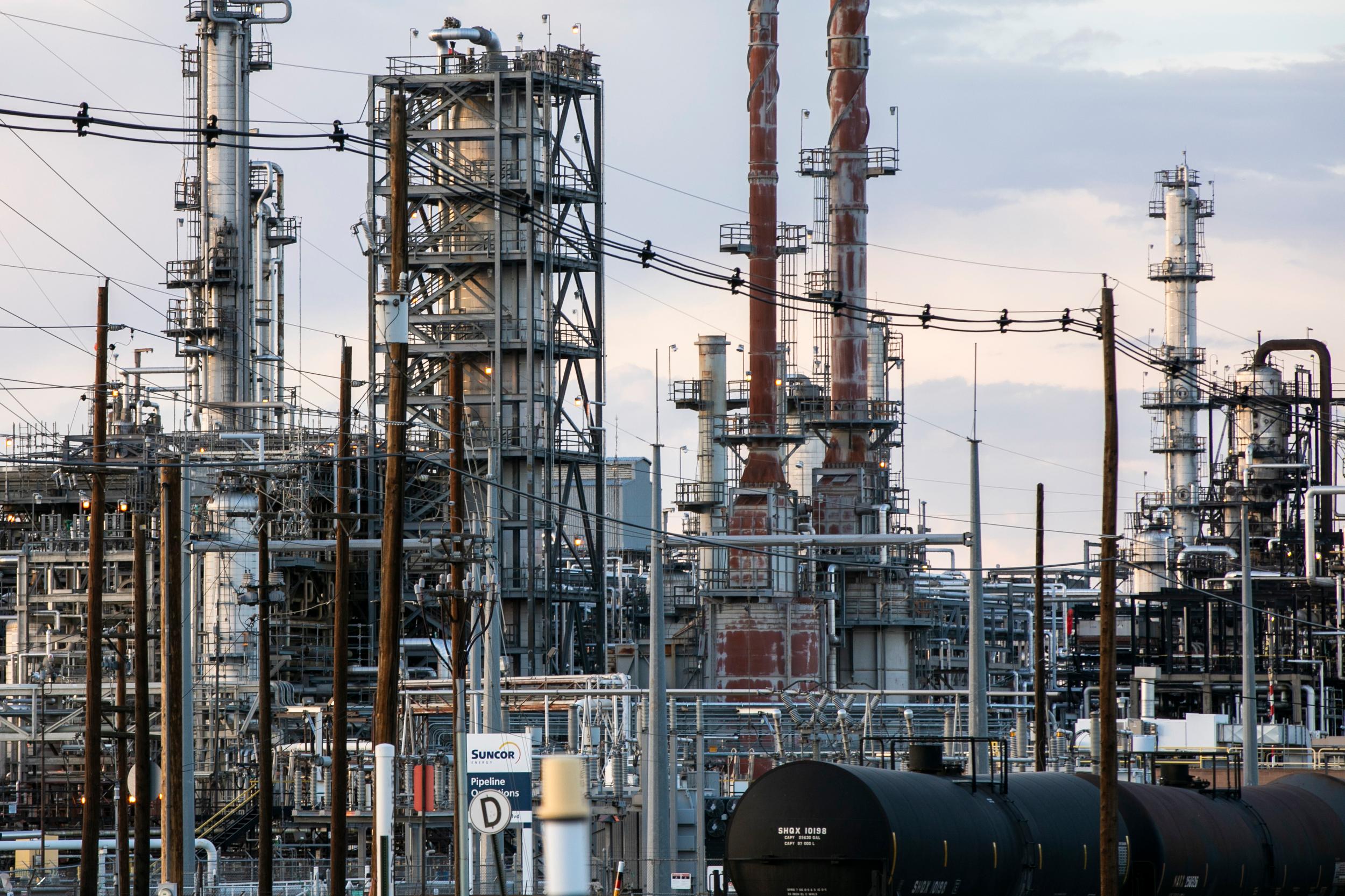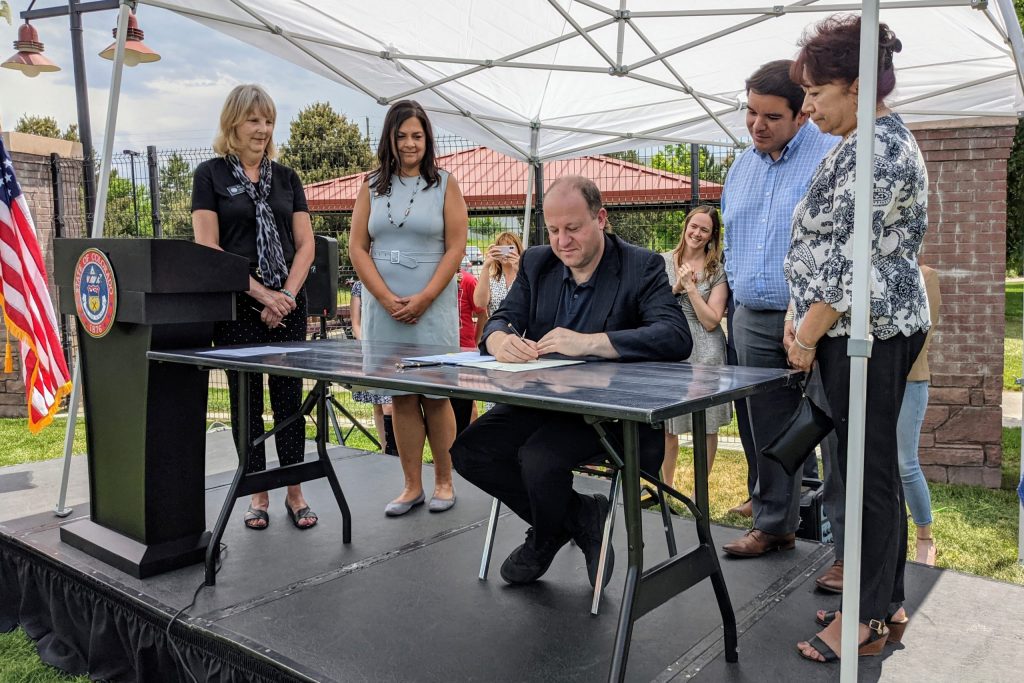
Gov. Jared Polis signed a bill Wednesday to increase air monitoring around some of the state’s heaviest polluters.
His office chose a park in Commerce City for the occasion, which was a short distance from the Suncor oil and gas refinery. Suncor is a financial supporter of CPR News.
The site has become a symbol of environmental injustice after repeated air pollution violations that have exposed the low-income and largely Latinx neighborhoods nearby. It’s also one of a handful of industrial sites immediately affected by the new law.
Under the legislation, industrial plants like the Suncor refinery must install fenceline air monitors and publish real-time results on a public website. The new law also authorizes the state to purchase a new mobile air-monitoring van to track pollution releases in affected neighborhoods.

A coalition of environmental groups and residents backed the bill. Lucy Molina, a community activist from Commerce City, joined the signing ceremony.
“I think this is a start,” Molina said. “The community is speaking out and we want more accountability and more transparency."
The legislation targets three specific air toxins: benzene, hydrogen sulfide and hydrogen cyanide. Any facility releasing more than a set threshold for each chemical must comply with the new air monitoring rules. Currently, those facilities include the Suncor refinery and a Phillips 66 fuel terminal in Commerce City, a fuel terminal in Henderson and the Goodrich Carbon aircraft brakes plant in Pueblo.
Rebecca Curry, an attorney with EarthJustice who helped advance the bill, said more sites could be included in the future. The legislation empowers Colorado air commissioners to lower the thresholds to trigger air monitoring requirements and force companies to track more types of toxins.
- One Reason A Landmark Colorado Climate Bill Is On Pause? A Massive Coal Plant In Pueblo
- Suncor’s Outdated Air Pollution Permit Is Up For Renewal. Here’s What’s At Stake
- Colorado Attorney General Hiring Investigator To Probe Accusations That State Regulator Falsified Air Pollution Data
- Commerce City Nonprofit Wins Suncor Energy Fine Money, Will Use It To Monitor Suncor Energy
While the new law requires additional monitoring, it does not set limits on the target air toxins. State Rep. Adrienne Benavidez, a Democrat representing Adams County, said an earlier version of the bill would have required air regulators to put emission caps in air pollution permits. She said she hopes to bring the idea back in a future legislative session.
“Those limits would be the next step,” Benavidez said.
In an emailed statement, a Suncor spokesperson said the company already conducts fenceline monitoring for benzene and has already taken steps to meet the requirements of the legislation. The company is also working on a community air monitoring program of its own, which is set to launch this summer.








